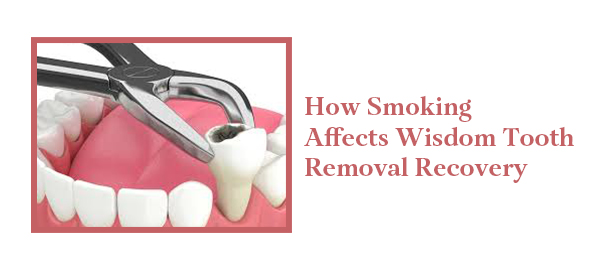
Smoke and Recover? The Real Impact of Tobacco on Wisdom Tooth Healing
How Smoking Affects Wisdom Tooth Removal Recovery
Wisdom tooth extraction is a routine dental procedure, yet its post-operative care greatly influences healing. Smoking, in particular, can significantly hinder recovery. Let’s explore how tobacco use impacts the healing process after wisdom tooth removal.
Smoking’s Effects on Oral Healing
Tobacco introduces several harmful effects on mouth tissues:
• Blood vessel narrowing: Nicotine leads to constricted blood vessels. This in turn limits blood flow to healing areas.
• Oxygen deprivation: Reduced blood flow leads to lesser oxygen reaching to the healing sites.
• Immune system weakening: Tobacco components dampen the body’s defense mechanisms, raising infection risks.
Key Complications Linked to Smoking
1. Dry Socket
• Risk increase: There is 3X increase in probably of development of dry socket in smokers than non-smokers.
• Cause: Nicotine interferes with blood clot formation in the tooth socket.
2. Slower Wound Healing
Smoking slows healing by:
• Reducing cell growth
• Decreasing collagen production
• Slowing surface skin regrowth
3. More Pain and Swelling
Research shows smokers often experience:
• Higher pain levels during recovery
• Longer-lasting inflammation
• Greater need for pain medication
Advice for Patients
To improve recovery, dentists recommend:
1. Abstinence period: Avoid smoking for at least 3 days after extraction, preferably longer.
2. Nicotine alternatives: Consider nicotine patches if quitting completely is too difficult.
3. Oral care: Maintain thorough mouth hygiene to reduce infection risks.
Smoking clearly harms wisdom tooth extraction recovery. Smokers face higher risks of complications, delayed healing, and extended discomfort. While quitting smoking is ideal, even short-term abstinence can greatly improve recovery. Dental professionals play a vital role in informing patients about these risks and offering strategies to enhance post-operative healing.
Leave a Reply
Leave a Reply
Explore More Similar Posts
Explore More Blogs


Leave a Reply